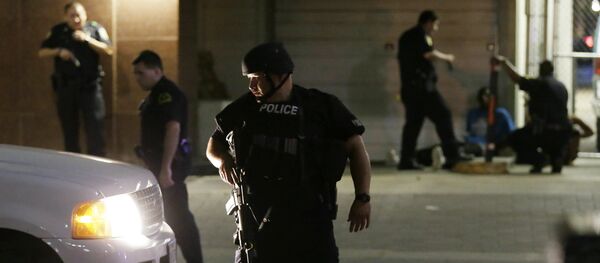A four-part investigative series by Jamie Kalven for the Intercept tells the story of those whistleblowers, Shannon Spalding and Danny Echeverria, their undercover FBI-CPD mission to expose the rot running deeply through Chicago’s thin blue line, and what they suffered for their efforts.
As Kalven reports, Spalding and Echeverria discovered a huge criminal enterprise operating within the city’s police department, complete with a lucrative protection racket, targeted arrests of their drug dealers’ rivals, and possibly murder. And, following a movie blockbuster script, they discovered that almost wherever they went, their investigations were dismissed, squashed, or met with harassment, threats and reprisal.
The two were forced out of the police department while, as Cory Doctorow points out, almost none of the increasingly-senior Chicago law enforcement officials who helped to cover up the departments’ wrongdoings were outed or reprimanded, and happily retired with their six-figure pensions, and their consciences, intact.
One more instance of corruption within Chicago’s law enforcement bodies should not come as a surprise, following as it does discoveries that officers’ dashcams are the objects of intentional destruction; that it operates secret, illegal interrogation rooms, that it has spent hundreds of thousands of dollars on cell phone tracking systems; and that, like so many other American police forces, its members seem to so often shoot first (when it comes to black male suspects) and ask questions later. And only if they are forced to by a judge.
"The report itself isn't that shocking or surprising, we have long heard misconduct complaints about Chicago Police Department," Freddy Martinez, director of the Lucy Parsons Labs, who brought the cell phone tracking lawsuit against the city, told Sputnik.
"It's quite interesting seeing Nick Roti at the center of the story," Martinez noted. Roti is the former head of the Organized Crime Bureau of the Chicago Police Department, and is described in the Intercept report as calling whistleblowers "rats" and saying that he would refuse to work with them. "Our investigation found that he's been central to many of the decisions of Bureau of Organized Crime, which seems to be quite plagued in scandal. It's a bit shocking to see that year after year commanders from CPD keep getting promoted and given more power [emphasis in the original]. The overlap of the war on drugs and police corruption is deeply entrenched in Chicago and you can tell this story is just another aspect of it."
The officials named as defendants in the whistleblower lawsuit – who also include the commander of the Narcotics Division and the chief of the department’s Internal Affairs Division – all deny the charges, Kalven notes.
This united front is the ultimate expression of the department’s code of silence, Kalven points out. But, as he says in the introduction to the lengthy piece, perhaps that is not enough anymore. With the 2014 shooting death of Laquan McDonald and the recommendation that seven officers be fired for their roles in covering up the circumstances surrounding his death, the department “has lost control of the narrative. This creates space for Shannon Spalding's voice finally to be heard."




